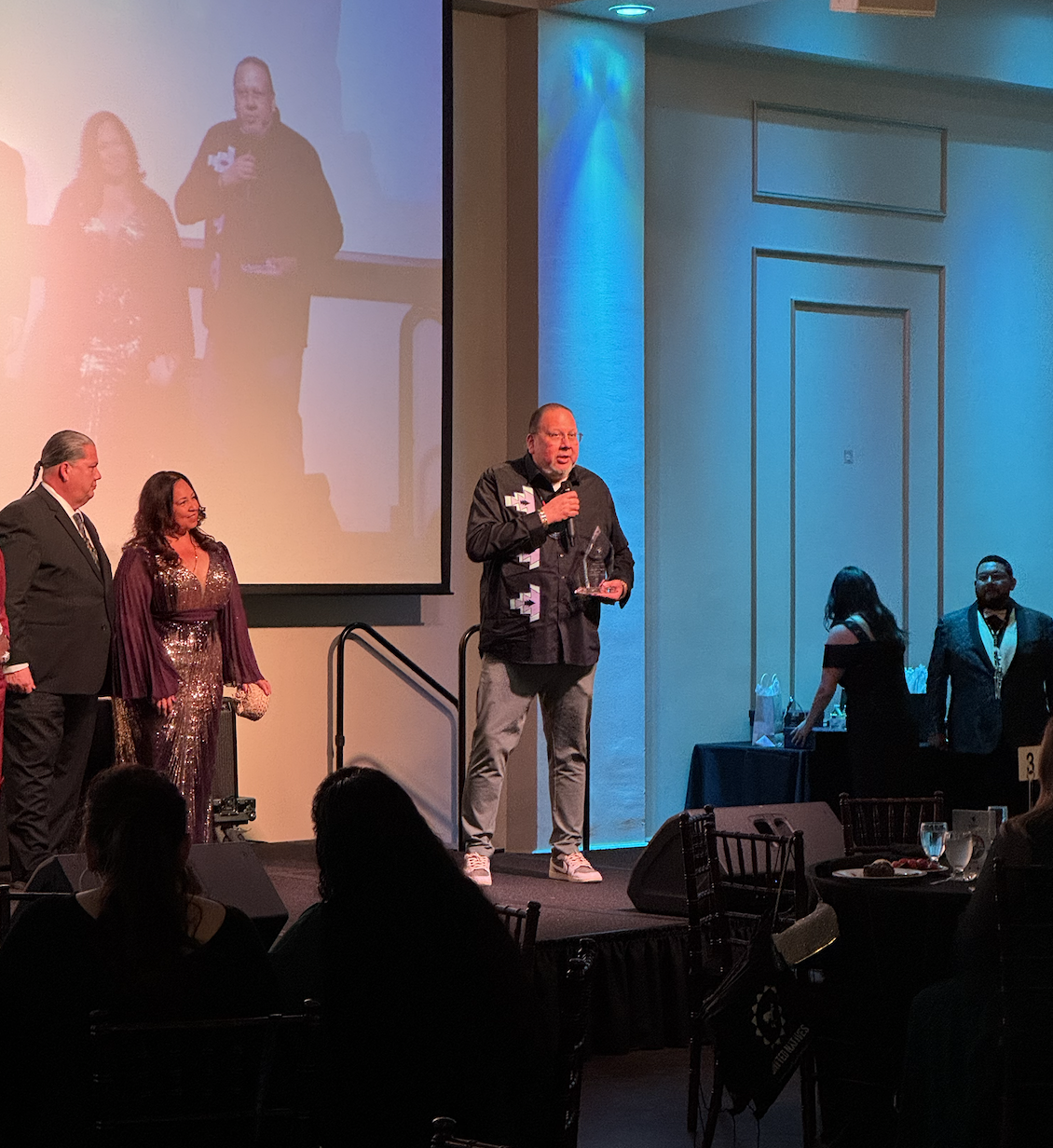
- Details
- By Kaili Berg
On Tuesday, February 4, 2025, United Natives, a national Native-led nonprofit, hosted its Second Annual United Natives Sports Gala at The Cannery in New Orleans, Louisiana.
Leading up to the NFL’s most anticipated championship football game, the event was strategically scheduled during Super Bowl Week.
Building upon the success of their inaugural event in Las Vegas last year, which marked a groundbreaking moment for Indigenous representation, this year’s gala continued the organization’s mission to ensure Native people feel seen, supported, and recognized in all spaces, including major sports stages.
The gala featured fine dining, live entertainment, and an awards ceremony honoring the remarkable contributions of Indigenous athletes and advocates.
Proceeds from the event support United Natives initiatives, which have provided free mental health counseling to over 1,500 Native individuals across 13 states, organized sports camps for more than 625 youth, and delivered over 3,000 truckloads of firewood to elders.
“This relationship with United Natives is brand new to us but the decision to be a key sponsor with United Natives purpose was a no brainer,” Marea Flores, Wilton Rancheria Tribal Council Member said in an interview. “The minute we had an opportunity to discover the focuses of mental health and youth mentorship brought us out here to learn more about the medicine they bring to our entire nation.”
Attendees were treated to the unique and immersive experience crafted by acclaimed creative director Zaire Baptiste, known for his expertise in luxury brand events and private celebrity galas.
The event also brought together sports legends, community leaders, influencers, and partners, all united by shared commitment to equity and empowerment through sports.
Among the honorees and special guests were hip-hop icon Eric B., former UFC champion Rashad Evans, Netflix star Derek Hinkey, and Notorious Cree, a world-renowned hoop dancer and social media sensation.
Also in attendance were Latasha Causey, the first Black female raceway president at Phoenix Raceway, and Elicia B. Sheridan, Vice President of Community Relations for the New Orleans Saints.
Also in attendance were DJ Franzen, Indigenous Enterprise; musician Greg Banks; Governor Stephen Roe Lewis of the Gila River Indian Community; and Shayna Powless, CEO of Dreamcatcher Foundation, brought leadership and advocacy to the event.
“It is such an honor to be honored here with some amazing award recipients,” Stephen Roe Lewis, Governor of the Gila River Indian Community said at the awards ceremony. “We have really worked shoulder to shoulder to uplift out Indigenous communities.”
Other notable figures included Chris James, former NFL player James Boyd, mental health advisor Bianca McCall, and Theron Davis, co-owner of the Carolina Cobras. PR executive Rebecca Otto, social justice advocate Dr. Topeka K. Sam, and business leaders Jornea Armant and Scarlen Martinez also lent their expertise.
The event was energized by DJ Tyski and featured entertainment industry leaders Alex Lockhart and King Buckley. Dr. Crystal Lee, founder of United Natives and the first Native American to own a professional sports team, led the evening’s celebrations.
More Stories Like This
Native News Weekly (August 25, 2024): D.C. BriefsUS Presidents in Their Own Words Concerning American Indians
Federal Judge Orders ICE to Halt Use of Pepper Spray, Arrests of Peaceful Protesters in Twin Cities
Tunica-Biloxi Cultural Leader John D. Barbry Walks On
Next on Native Bidaské: Federal ICE Activity in Minneapolis: Ruth Buffalo’s Perspective
Help us defend tribal sovereignty.
At Native News Online, our mission is rooted in telling the stories that strengthen sovereignty and uplift Indigenous voices — not just at year’s end, but every single day.
Because of your generosity last year, we were able to keep our reporters on the ground in tribal communities, at national gatherings and in the halls of Congress — covering the issues that matter most to Indian Country: sovereignty, culture, education, health and economic opportunity.
That support sustained us through a tough year in 2025. Now, as we look to the year ahead, we need your help right now to ensure warrior journalism remains strong — reporting that defends tribal sovereignty, amplifies Native truth, and holds power accountable.
 The stakes couldn't be higher. Your support keeps Native voices heard, Native stories told and Native sovereignty defended.
The stakes couldn't be higher. Your support keeps Native voices heard, Native stories told and Native sovereignty defended.
Stand with Warrior Journalism today.
Levi Rickert (Potawatomi), Editor & Publisher


